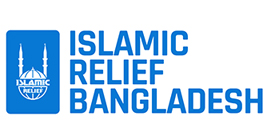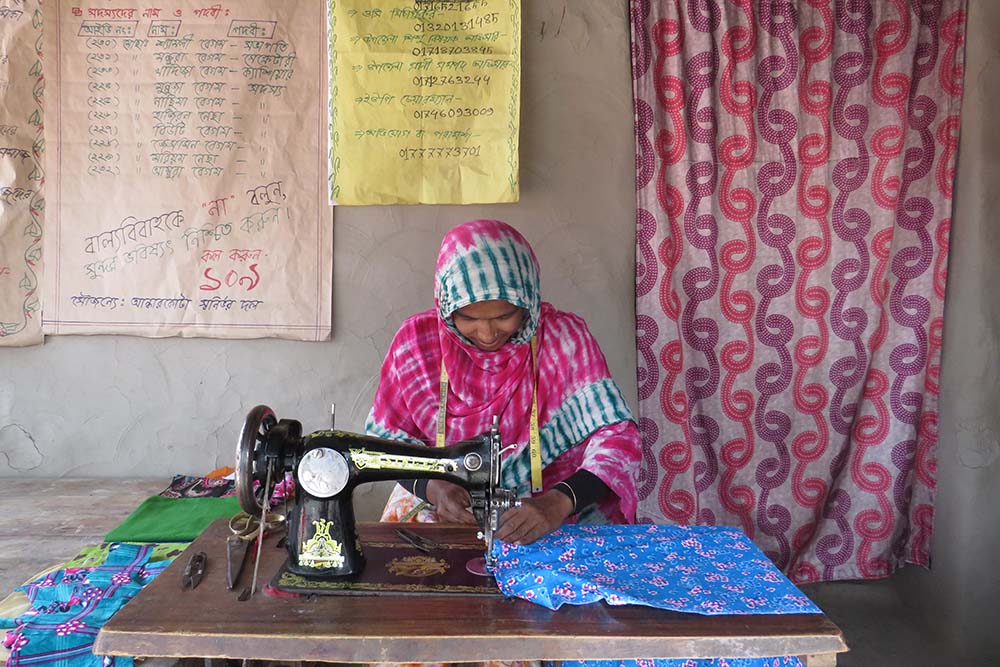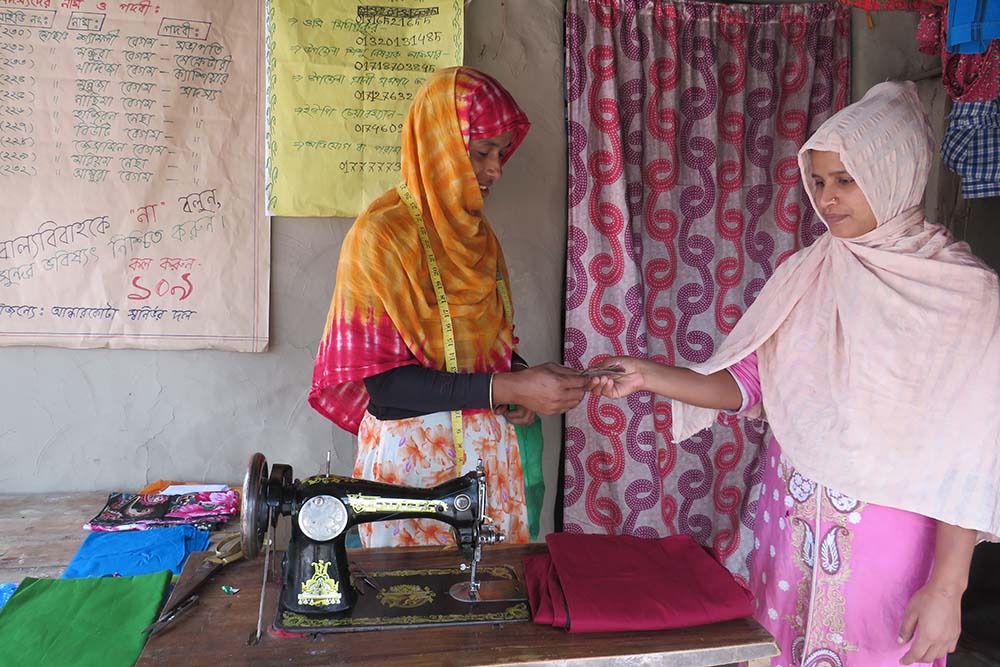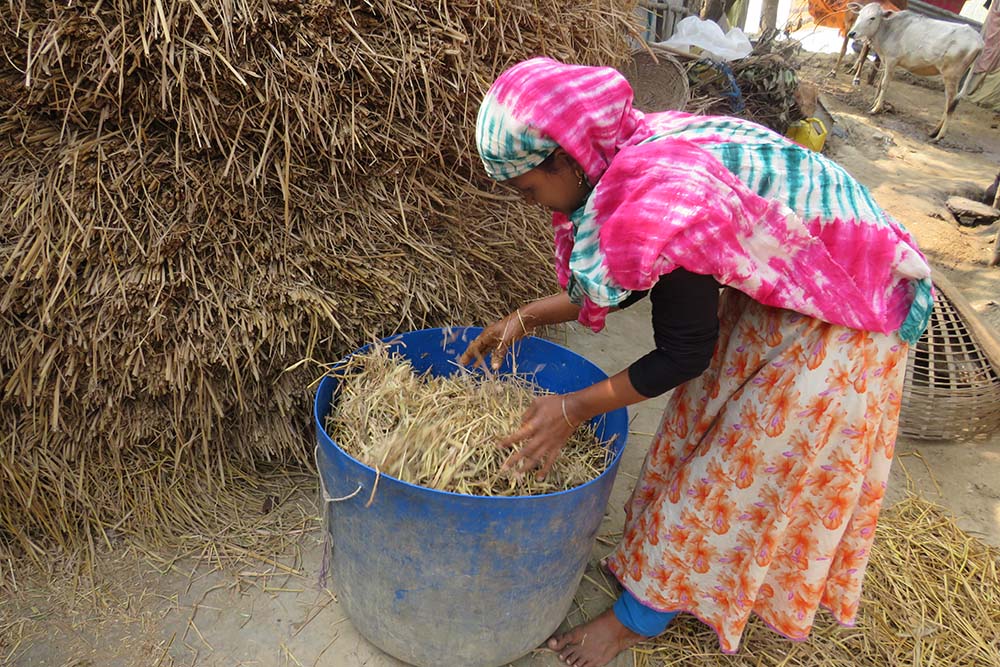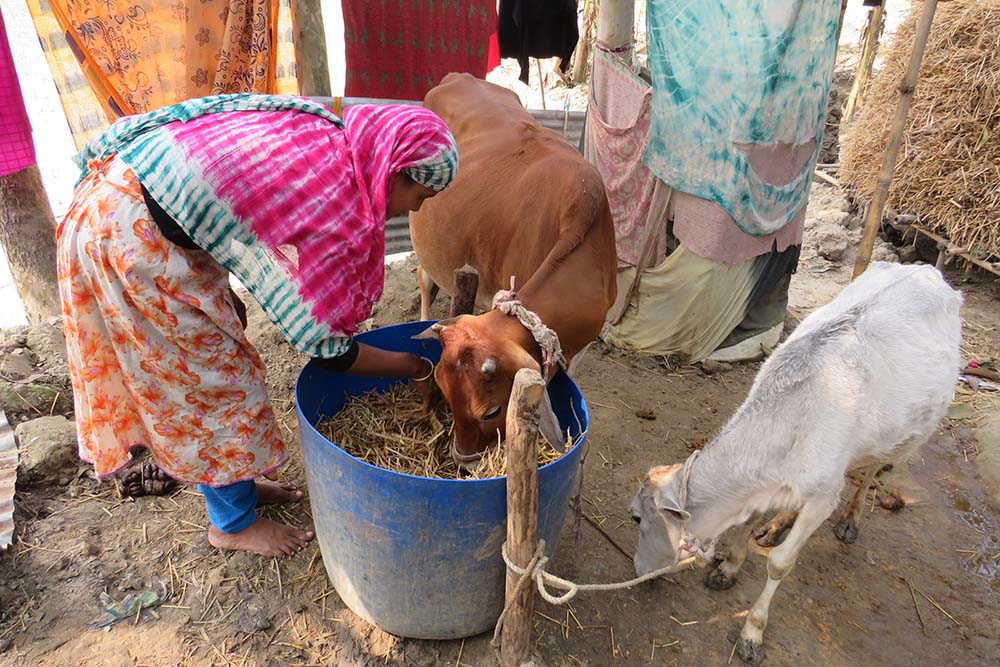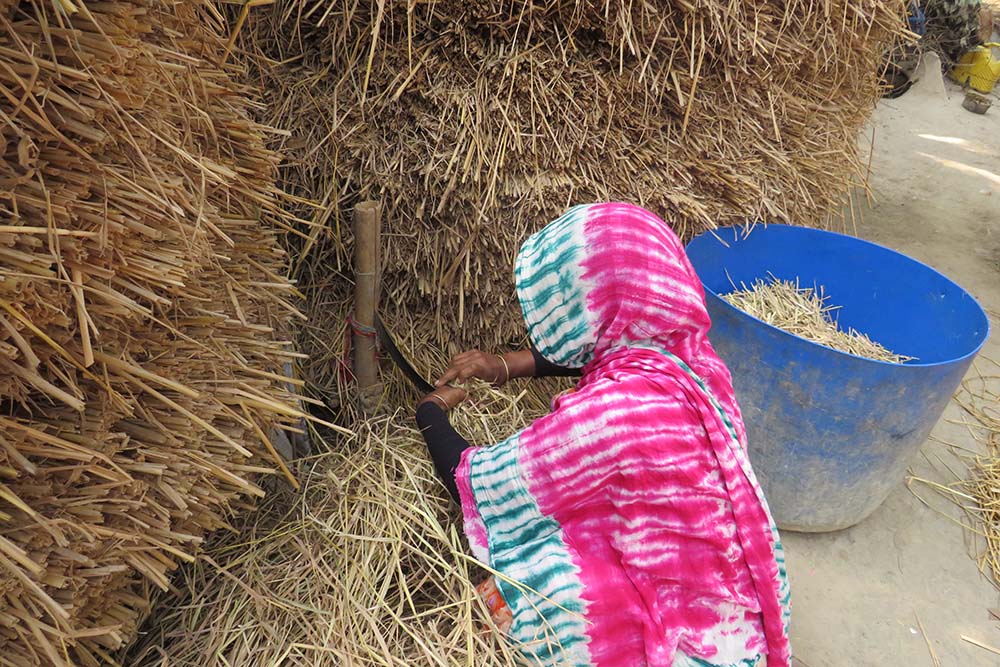Khadija Begum (37), the only daughter of deceased Abdul Bari Mondal and mother Piyari Begum of Adharkota village located at Baluamasimpur union under Mithapukur sub-district. The family struggled to run their family as there was no steady income source. Even they did not have any significant productive asset. Her mother used to work as housemaid to the local rich people’s house and earn a meagre income.
It was very difficult to maintain their family with her mother’s little income. Her academic education got stopped at grade eight after the untimely demise of her father. “It was very unfortunate as my father had a sudden death. My mother and I were completely devastated. My mother used to work as a domestic help and she could not afford to pay the tuition fees and other costs of my education. I had a dream of doing some job after completion of my school certificate. My father wanted me to get educated as well. But our dream was shattered in a blink of eye,”- Khadija recalled her past.
Most of the girls get married at a very early age in Bangladesh. Many poor parents treat girls as a burden and get them married off. Same happens to Khadiza. Finding no other alternative, her widow mother married her off to one of her cousins named Hafizar Rahman (42) in the same village in 2007. The poor widow had no choice despite the age gap and other faults. Hafizur Rahman, Khadija’s husband was also a poor person who used to earn his living by renting out his labour to the community to help the wealthy farmers planting and harvesting their crops. The family did not have productive asset except 8 decimals of homestead land. Due to low earning, the family run with much hardship. To raise the income Hafizur started cultivating other’s land as sharecropper, however the situation didn’t improve remarkably. In the meantime, Sadia Akhter Taslima was born in their family in 2009. As the family had to manage the needs of an additional person, it was like pouring gasoline to the
fire. The family was desperate to look for alternative sources of income.
To combat with the hardship and intolerable poverty Khadiza received tailoring training from the neighborhood. After receiving the training, she bought a second-hand sewing machine at BDT 7000.She had to borrow the money from different sources to purchase the machine. After buying the machine she started earning some money by sewing the dresses for the girls and women of her neighborhood. But due to insufficient amount of capital she was unable to store the clothes that lowered the demand of her tailoring endeavors. So, their miseries still adhered with them. Khadija again gave birth to her second daughter Tabassum Humaira in 2015 and due to which the family got in another trouble as the expenses increased. Even though the family was having a lot of difficulties, Khadija did everything with her power to ensure the education of her children and enrolled them in school.
The Preventing Early Marriage in Bangladesh (PEMB) Project began operating in Khadija’s neighborhood in January 2021 while her family was struggling to overcome the hardships they had been experiencing. As matched with the criteria of being adolescent from vulnerable family, Sadia Akhter Taslima (13) Khadija’ elder daughter was selected as a project participant. Subsequently, Khadija was selected as another rightsholders as the female head of the family. After selection as per project’s modalities, Khadija was provided with BDT 5000 as cash grant to establish Income Generating (IGA). The project also provided her with necessary technical training on tailoring, cow and goat rearing, cow fattening, small business to establish and manage the IGA efficiently. Since Khadija had prior experience to work as tailor, she decided to invest in tailoring sector. Therefore, she bought more clothes to revive the tailoring business. While she started the tailoring business again, she earned around BDT 300 – 400 per day.
After meeting the familial expenses, she was able to save money. She bought a cow and two goats with her savings. Khadija was too adamant to raise the income of her family to get rid of the poverty and to meet the necessities of the family. As such, she took BDT 10,000 as Quard-Al-Hasana (interest free loan) from the local Self-Help- Group (SHG) and had leased a piece of land of thirty decimals to cultivate agricultural crops. With all the above efforts, her familial income has raised and she now she earns almost BDT 15,000 – 20,000 per month. Her productive asset has increased almost four times compared to her earlier days. Apart from these, considering her integrity, sincerity and skills the local SHG members elected her as a cashier. The project also provided her with necessary training on leadership and management to transform her a leader and spokesperson of the SHG. Khadija has been leading her team efficiently. During the discussion she found to be empowered. Relieving from the miseries Khadija expressed her view as “All the project initiatives helped me increasing my familial income that resulted to bring out my family from the miseries and distresses of not meeting the basic needs. We were just struggling to ensure two meals a day. Alhamdulillah Islamic Relief has dragged out from poverty. I will ensure my girls education and not marry them off early.” Khadija vowed to provide higher education to her daughters.
At present, Khadija’s first daughter Sadia Akhter Taslima is studying in grade eight of Santoshpur High School. She wishes to make her admission in the nursing college to support her building the career as nurse after passing SSC. Khadija also is found very optimistic not to marry off her daughter at the early age like herself. During the interview session she remarked “I got married at a young age. I understand the pain. I will never marry off my daughter at a young age”.
And finally, to acknowledge the efforts of Islamic Relief she said, “Islamic Relief Bangladesh has showed us the ways of improving the quality of our lives and livelihoods and also helped to build an interest-free society”.
